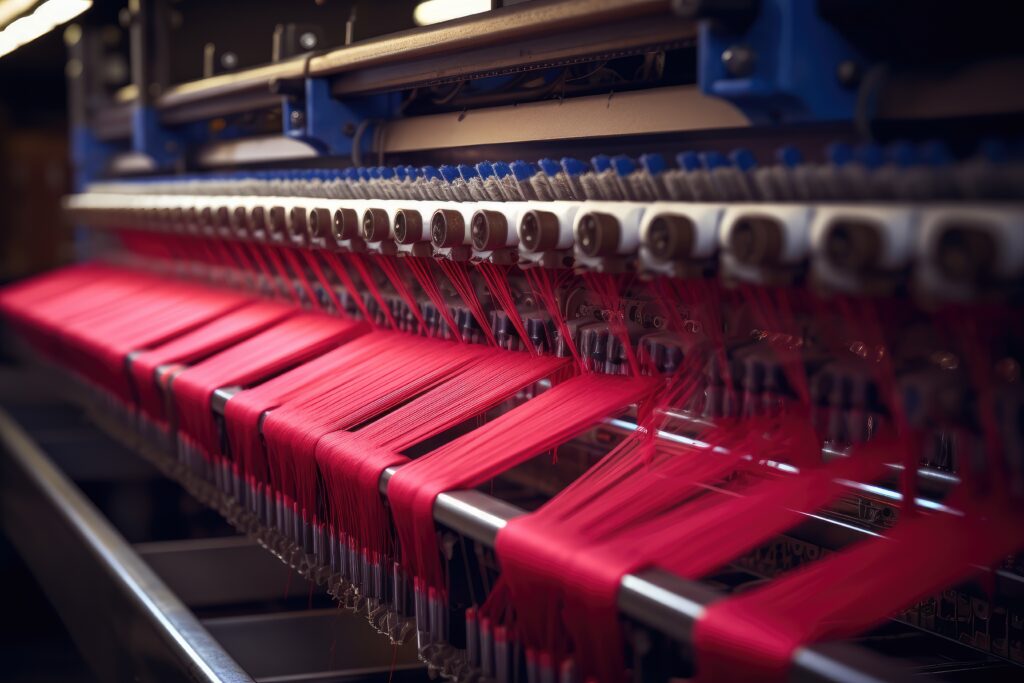5 Ways Textile Manufacturers Can Enhance Inventory Management
5 Ways Textile Manufacturers Can Enhance Inventory Management Schedule Meeting Textile manufacturers face unique challenges when it comes to inventory management. High inventory levels can result in excess storage costs, potential waste, decrease in liquidity, and so much more. In fact, businesses can suffer a loss of USD 175 trillion due to mismanaged inventory. Therefore, reducing inventory levels is necessary for avoiding excess holding costs, stockouts, minimizing waste, and to improve overall operational efficiency. But how can textile manufacturers optimize their inventory without compromising their ability to meet customer demand? In this blog, we will explore the importance of inventory management for textile manufacturers and provide five effective strategies to achieve this goal. Importance of Inventory Management for Textile Manufacturers Managing inventory is crucial for textile manufacturers, and here’s why: Cost Savings: Storing inventory costs money. By reducing inventory, manufacturers can save on storage costs, insurance, and related expenses. Less Waste: Overstock can lead to waste if the fabric becomes obsolete or deteriorates over time. Less inventory means less potential waste. Improved Cash Flow: Money tied up in inventory is money that isn’t available for other parts of the business. Reducing inventory frees up cash for other uses. Better Responsiveness: With less inventory, textile manufacturers can be more responsive to the changes in the market, quickly adjusting their product lines to meet changing customer demands. Increase in Efficiency: Inventory management becomes easier and more efficient with fewer items to track. It also reduces the risks of theft, damage, and other losses during emergencies. 5 Ways for Textile Manufacturers to Manage Inventory Accurate Forecasting Accurate forecasting is key to understanding the expected demand, which directly influences inventory levels. With precise forecasting, textile manufacturers can ensure they only produce what’s necessary, reducing the chances of overproduction and surplus stock. Modern tools and inventory management systems can help in analyzing market trends, seasonal fluctuations, etc., to create more accurate forecasts. This not only reduces costs associated with excess inventory but also enables better resource allocation, planning, and improves overall business efficiency. Reduce Lead Time Reducing lead time is a strategic way to implement inventory control. In the textile manufacturing industry, this often means enhancing coordination with suppliers and optimizing production processes. By streamlining operations and improving supplier relationships, manufacturers can receive materials quicker and produce fabric faster. Shorter lead times allow manufacturers to hold less buffer stock, as they can rely on faster replenishment of supplies. Furthermore, with reduced lead times, manufacturers gain the flexibility to respond swiftly to demand changes without requiring substantial safety stock, thereby preventing overstocking. Eliminate Obsolete Inventory As per records, almost 20-30% of a business’ inventory is obsolete at any given point. Holding onto obsolete inventory means tying up capital in items that no longer meet market demands or industry standards. Clearing out outdated fabrics can free up valuable warehouse space for more in-demand and current materials, improving storage efficiency. Regularly reviewing and updating inventory helps in identifying slow-moving items, allowing for timely decisions to clear them out. Eliminating obsolete stock also provides a clearer picture of the actual inventory, leading to more accurate financial reporting and better decision-making processes. Encourage Real-time Reporting Real-time reporting offers an instant visibility of current inventory levels, enabling manufacturers to make quick, informed decisions. By having access to real-time data, discrepancies between actual stock and recorded inventory can be spotted and rectified immediately, reducing errors and associated costs. Implementing an inventory management system that supports real-time reporting ensures that replenishment orders are on time, preventing potential stockouts or overstocking. Real-time insights also empower textile manufacturers to respond to sudden changes in the demand or supply chain disruptions, ensuring that inventory levels are always optimized. Choose an Inventory Management System An effective inventory management system will help automate tracking and updating of inventory records, reducing manual errors and ensuring data accuracy. Advanced systems even offer features like demand forecasting, trend analysis, etc. This directly helps in maintaining optimal inventory levels. Some inventory management systems also come with integration capabilities that allow all data across sales and supply chain to be synchronized. This removes data silos and helps manufacturers with strategic planning. The right inventory management system facilitates transparency, efficiency, and increased ability to respond to changing market needs. Using these systems, manufacturers can ensure that resources are used judiciously, and inventory is always aligned with market demands. In conclusion, the path to effective inventory management for textile manufacturers involves a blend of strategic foresight and operational agility. By embracing accurate forecasting, reducing lead times, eliminating obsolete inventory, encouraging real-time reporting, and adopting a comprehensive inventory management system, manufacturers can navigate the complex landscape of supply and demand proactively. This not only optimizes inventory levels but also unlocks the potential for enhanced resource allocation, streamlined operations, and improved financial decision-making.











